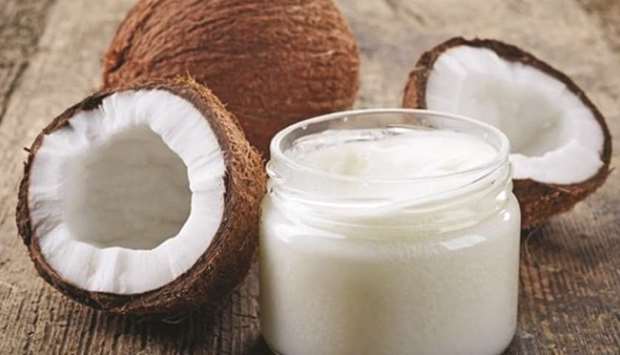Coconut oil raises ‘bad’ cholesterol in the same way as other foods high in saturated fats like butter and beef, according to the American Heart Association.
Indeed, butter and beef drippings have less saturated fat that raise levels of low-density lipoprotein (LDL), the bad kind of cholesterol that can build up in blood vessels and lead to clots and heart attacks, according to new AHA dietary recommendations. Coconut oil is 82% saturated fat, compared with 63% for butter and 50% for beef fat.
Instead of coconut oil, people should cook with so-called polyunsaturated fats like corn, soybean and peanut oils, the AHA advises.
“Replacing saturated with polyunsaturated has a two-fold effect because a fat that causes heart disease is lowered and a fat that prevents heart disease is increased,” lead author of the advisory Dr Frank Sacks, a researcher at the Harvard TH Chan School of Public Health in Boston, said by e-mail.
Coconut oil raised LDL about as much as other oils high in fat like butter, beef and palm oil in seven out of seven studies reviewed by the AHA for its advisory published in the journal Circulation.
Replacing saturated fats with polyunsaturated vegetable oil reduces the risk of cardiovascular disease by about 30%, the AHA concludes from its review of trials that used the scientific gold standard for research – randomly assigning some participants to get the intervention being tested and others to receive an alternative or no treatment.
Cardiovascular disease is the leading cause of death worldwide, accounting for 17.3mn fatalities a year, researchers note in the advisory.
Studies in many populations showed that lower intake of saturated fat coupled with higher intake of polyunsaturated and monounsaturated fat is associated with lower rates of cardiovascular disease.
For optimal heart health, the AHA recommends the Dietary Approaches To Stop Hypertension (DASH) diet or a Mediterranean-style diet. Both diets emphasise unsaturated vegetable oils, nuts, fruits, vegetables, low-fat dairy products, whole grains, fish and poultry and both limit red meat, as well as foods and drinks high in added sugars and salt.
Even eating like this some of the time may help, said Dr John Potter of the Fred Hutchinson Cancer Research Centre in Seattle.
“Small changes may be relevant,” Potter, who wasn’t involved in the study, said by e-mail.
These might include cutting saturated fat with one meatless dinner a week, reducing sugar by eating one less cookie or drinking one less can of soda, having one less glass of alcohol or getting a few extra minutes of exercise every day, Potter suggested.
Portions also matter, said Dr Lennert Veerman of the Cancer Council NSW in Sydney, Australia.
“Baking with coconut oil may not raise heart disease risks as much as, for example, a generous amount of butter on a 12-ounce steak, not to speak of the steak itself,” Veerman, who wasn’t involved in the study, said by e-mail. “But then again, a small reduction of risk every day adds up, so replacing coconut oil with olive oil may be an easy way to reduce risk a bit.”

